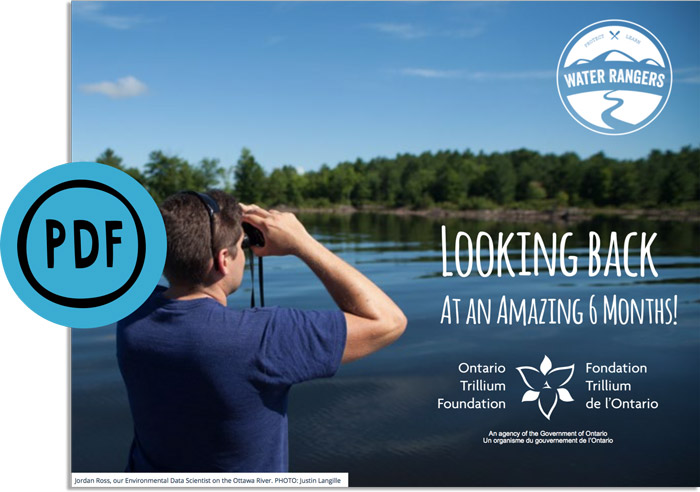Behaviour research
What the results say…
So far, we’ve found that when people learn about, and then test water, they are prompted to act to protect waterways!
In 2020, we conducted formal academic research with McGill University on happiness, nature connectedness and water stewardship.
Informally, we’ve been conducting research for the past few years! As we complete programs, such as this one funded by WWF-Canada and Loblaw, we usually ask our participants to fill out carefully designed questionnaires.
What did we learn from our formal research?
- When people start water testing, they start spending more time outdoors.
- Water testing makes people more likely to notice changes (seasonal and due to issues) in the ecosystems where they test.
- After testing weekly for just 4 weeks with our tiny kit, people felt more connected to nature than they had before starting to test.
- People who tested weekly for 4 weeks showed changes in their personal values! They showed an increase in what are called self-transcendent values, meaning how much they care for the well-being of others (this includes humans, animals and plants).
- Water testing is just one of the many actions people participate in to help protect our waters.
How does this help us protect waterbodies?
This informs our “theory of change”, which says that when people learn about, and then test water, they are prompted to act to protect waterways. This means that water testing creates a snowball effect for making people want to protect waterbodies. Testing the water makes them spend time outdoors, which makes them feel more connected to nature and care more for the ecosystems they test (by changing their values!). Since they spend more time outside, and feel more connected to these places, they’re more likely to take other actions to help protect waterbodies. This could be as simple as picking up trash around places where they go test, or more involved work like writing to local government to help protect waterbodies.
Testing waterbodies and uploading your data to our platform also helps protect waterbodies you care about. We share your data with DataStream where it can be accessed by scientists and decision makers! As a water tester, you’re part of a larger movement, where everyone’s combined small actions can lead to big positive changes. If you have questions about our behaviour research, you can contact Laura.
Check out the impact reports below which explain the results of some of our programs in greater detail!
Funding and Impact reports
LUSH Community Kits (2020)
OTF Report (2020)
WWF-Canada and Loblaw (2019)
Great Lakes Guardian Fund (2018)
LUSH Rangers (2018)
App and development (Lush 2017)

Ocean Explorer Wavemakers (2016)
